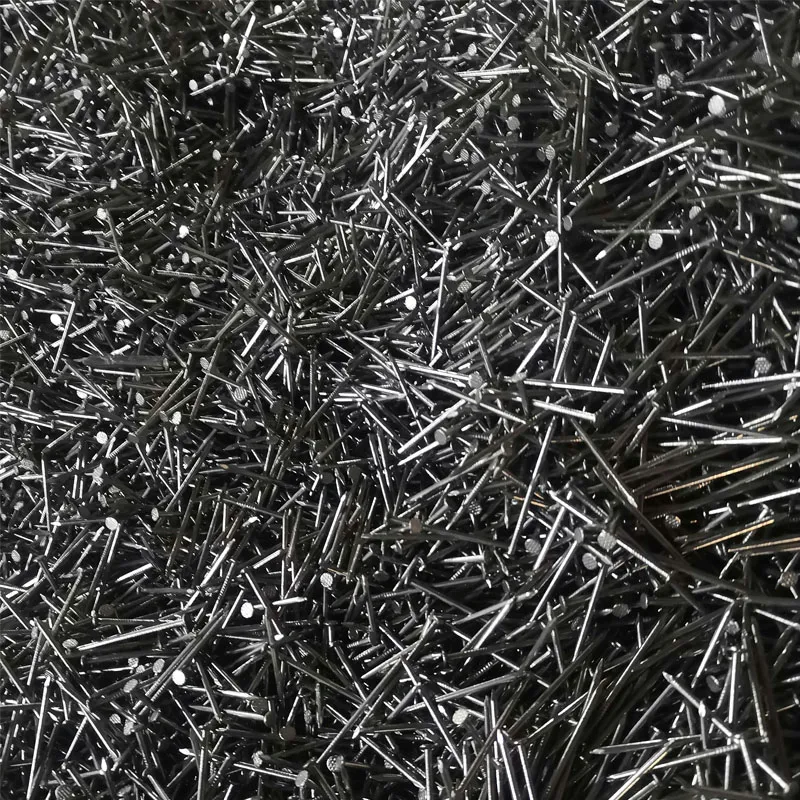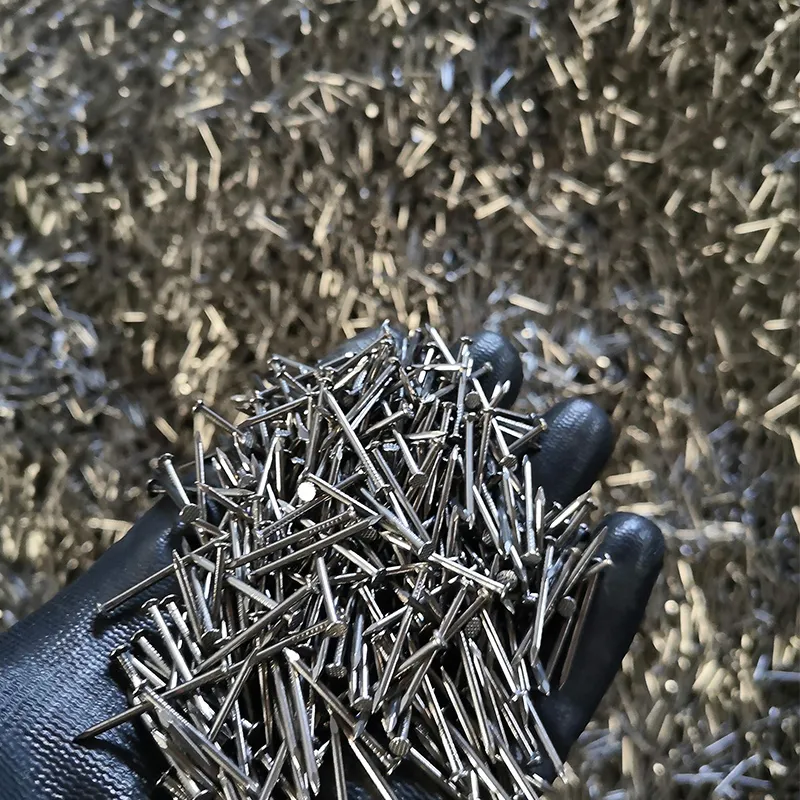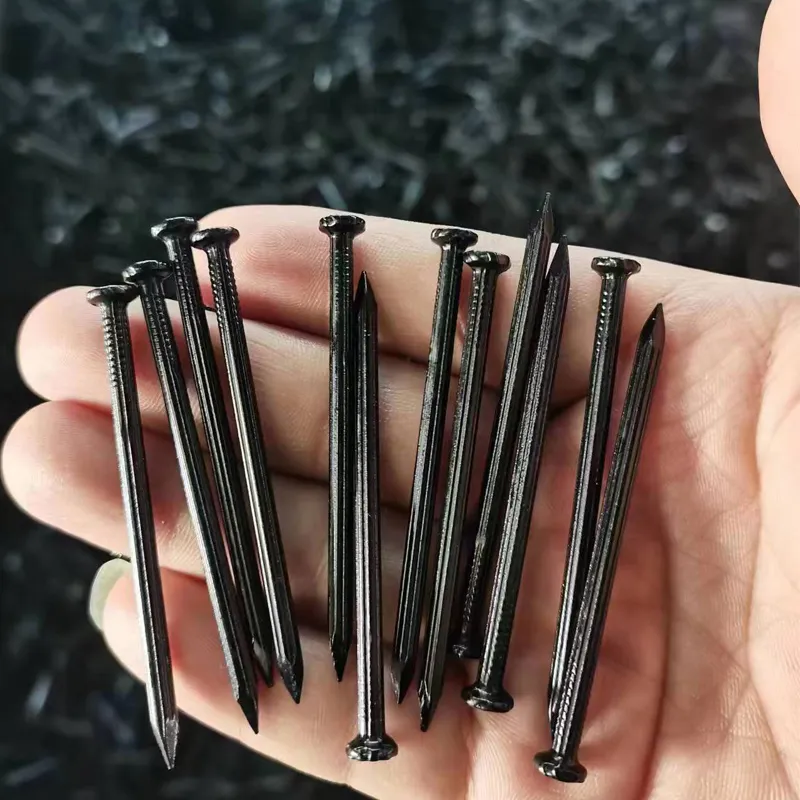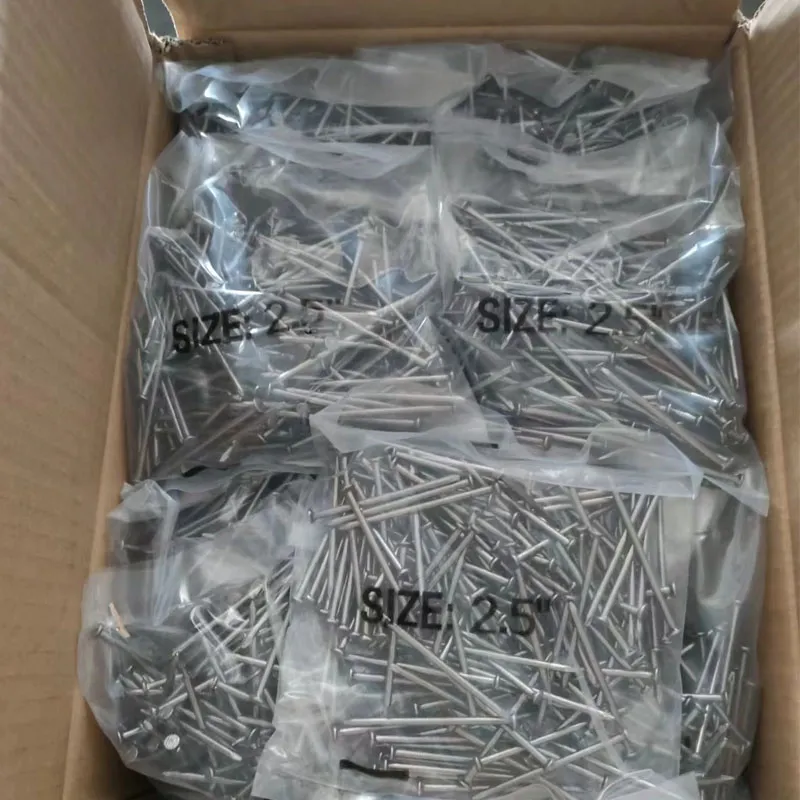aug . 01, 2025 00:00 Back to list
Common Nail Factory | AI-Powered Quality with GPT-4 Turbo
In today's dynamic construction materials industry, common nail factory operations play a crucial role in supplying robust Construction Nails and Building Nails globally for infrastructure, civil architecture, and industrial applications. This comprehensive guide delves into industry trends, manufacturing processes, technical parameters, application cases, and competitive advantages of common nail factory products, powered by real-world data, authoritative standards, and proven expertise.

Industry Trend Analysis | Market Data Insights
The global market for common nail factory products surpassed USD 14.3 billion in 2023 (Grand View Research), projected to grow at a CAGR of 4.2% till 2028, driven by urbanization, modular construction, eco-friendly coatings, and high-specified building requirements. Key regional suppliers and export hubs include East Asia, Europe, and North America.
Common Nail Factory: Manufacturing Process & Technical Workflows

- Raw Material Inspection: High or low carbon steel wires, tested per ISO 898-1, ASTM F1667 for diameter uniformity, tensile strength.
- Wire Drawing/Pre-Treatment: Wire rod is descaled and drawn to precise diameter range [1.2–6.0 mm], ensuring ductility.
- Cutting & Forming: Automatic nailing machines cut wires, form heads and points (flat, diamond, blunted, etc).
- Heat Treatment & Hardening: Achieves required mechanical strength (point hardness ≥ HRC 45).
- Surface Coating: Electro-galvanizing, hot-dip zinc, or PVC coatings enhance corrosion resistance; standards: ASTM A153/B6, ISO 1461.
- Quality Inspection: Automated, camera-inspected for dimensional tolerance and head shape per ANSI B18.8.1.
- Packing & Shipping: Boxed/bulked for logistics, short lead times (usually 2–4 weeks per batch).
Process Video & Animation
For a visual insight into top common nail factory workflows, see this sample production line video:
▶ Common Nail Factory Manufacturing Video (YouTube)

Technical Comparison: Common Nails vs Construction & Building Nails
| Parameter | Common Nails | Construction Nails | Building Nails |
|---|---|---|---|
| Raw Material Grade | Q195/Q235 Carbon Steel | Q235/SWRH62A/Low Alloy | Q195, 45#, 201/304 SS |
| Diameter Range | 1.2 - 6.0 mm | 2.0 - 6.5 mm | 1.2 - 8.0 mm |
| Length Range | 20 - 150 mm | 25 - 200 mm | 12 - 200 mm |
| Head Type | Flat, Countersunk | Flat, Umbrella, Lost Head | Flat, Oval, Conical |
| Shank Type | Smooth, Twisted | Smooth, Spiral, Ring | Smooth, Annular, Fluted |
| Coating | Galvanized, Black, Bright | HDG, Epoxy, Stainless | Polished, Vinyl, HDG |
| Typical Shear Strength (Mpa) | 750 | 850 | 700-950 |
| Corrosion Life (Neutral Salt Spray) | 48-240 Hours | 120-500 Hours | 72-500 Hours |
| Applications | General Carpentry, Packing | Concrete Fastening, Heavy Timber | Masonry, Frame Structures |
Technical Data Visualization

Common Nail Factory: Material, Craft, and Technical Superiority
Engineering Parameters & Product Specs Table
| Spec | Common Nail | Standard | Unit |
|---|---|---|---|
| Diameter | 1.2 - 6.0 | ISO 898-1 / ASTM F1667 | mm |
| Length | 20 - 150 | GB/T 70, EN 10230-1 | mm |
| Material | Q195, Q235 Steel, SS304/316 | ISO 16143 / ANSI 316 | - |
| Surface Coating | Galvanized, HDG, Black | ASTM A153, JIS G3302 | - |
| Tensile Strength | 500 - 700 | ISO 6892-1 | MPa |
| Hardness (Point) | HRC 40-55 | ISO 6508 | HRC |
| Salt Spray Test Life | ≥ 120 | ISO 9227 | Hours |
Why Choose Our Factory?
- Material Integrity: Only certified premium carbon/SS wires, 100% traceability batch system.
- Automated Production: In-house fully-automated heads & shank formation; 15% higher molding speed than standard lines.
- Corrosion Protection: Triple-layer anti-rust coatings, proven by ≥200 hours neutral salt spray (SGS/BV reports available).
- Sustainability: Eco-friendly galvanizing/acid pickling, ISO 14001 environmental management certified.
- Dimensional Precision: Tight tolerances (±0.04 mm), 12-camera automated QA, >99.8% delivery acceptance rates.
- Third-party certified: ISO 9001, SGS, CE, Bureau Veritas; reference test reports/certificates available on request.
Industry Standard Reference: Our common nail factory adheres to ASTM A153 and ISO 1461 galvanizing specifications, with production strictly aligned with international quality management requirements.
Vendor Comparison: Leading Common Nail Factories 2024
| Criteria | YISZHE Wiremesh (Our Factory) | Competitor A (CN) | Competitor B (EU) |
|---|---|---|---|
| Annual Output (million tons) |
0.11 | 0.08 | 0.09 |
| Automated Rate | 97% | 90% | 92% |
| Custom Sizes | Yes (3-160 mm) | Only 8 fixed | Up to 100 mm |
| Third-Party Inspection | Full (ISO/SGS/BV) | Partial (SGS only) | Full |
| Corrosion Test (hrs) | 160-520 | 48-220 | 72-320 |
| Delivery Lead Time | 12-18 Days | 22-30 Days | 20-28 Days |
| Warranty | 3 Years | 1 Year | 2 Years |
| Typical MOQ (kg) | 500 | 1000 | 700 |
Typical Application Scenarios & Use Cases
- Structural Carpentry: Timber jointing, steel/wood composite panels, wall sheet fixing.
- Infrastructure Projects: Rail loading, pipeline brackets, prefabricated bridge formworks.
- Utility Conduits & HVAC: Fixing pipelines, cable clamps, drainage supports (ISO 9001 project compliance).
- Packaging & Palletizing: High-speed crate assembly, warehouse rack setups.
- Marine, Chemical Environments: SS304/316 common nails provide superior rust-resistance up to 5 years (source: ScienceDirect).
Case Example 2: For a major European prefab housing manufacturer, switch to high ductility common nails improved joint pull-resistance by 28% and cut installation times by 17% (EN 14592:2009 standard).
Custom Solutions & Value-Added Services
- On-Demand Customization: Full spec/length/diameter/pattern customization, private-label packaging
- OEM/ODM: Support for branding, special shank/point types, and non-standard metals (Copper, Aluminum Alloy, Stainless Steel)
- Compliance Consulting: Free technical consulting, rapid sampling (3–5 days), compliance with ISO, EN, ASTM, EU RoHS
- Technical Documentation: Full technical datasheets, MSDS, RoHS and REACH reports provided on batch shipment
- Quality Assurance: Triple QA steps, digital archiving, 0.01% complaint in last 100,000 batches
Delivery & Support Commitment
- Normal Lead Time: 12-18 working days (express options for urgent orders)
- Warranty: Standard 3-year corrosion and mechanical performance guarantee
- After-Sales Support: 24/7 online support, rapid replacement/compensation policy, free installation guidance
- Logistics: Sea, air, and train options with full tracking and customs compliance
FAQ: Deep-Dive on Professional Terms & Technical Issues
Further Reading & Authoritative References
- GrandViewResearch: Global Nails Market Size & Trends
- ASTM A153: Standard Specification for Zinc Coating
- ISO 1461: Hot Dip Galvanized Coatings
- Forum.Woodworking.com: Nails for Construction - Practical Experience
- ScienceDirect: Corrosion Resistance & Engineering Applications of Nails
- Engineering Toolbox: Types and Strength of Nails
- YISZHE Wiremesh Common Nail Product Details
-
Weather Resistance Properties of Quality Roofing Nails
NewsAug.01,2025
-
How Galvanised Iron Mesh Resists Corrosion in Harsh Environments
NewsAug.01,2025
-
Creative Landscaping Uses for PVC Coated Wire Mesh Panels
NewsAug.01,2025
-
Common Wire Nail Dimensions and Their Specific Applications
NewsAug.01,2025
-
Choosing the Right Welded Wire Sheets for Agricultural Fencing
NewsAug.01,2025
-
Anti - Climbing Features of Razor Wire Barriers
NewsAug.01,2025









